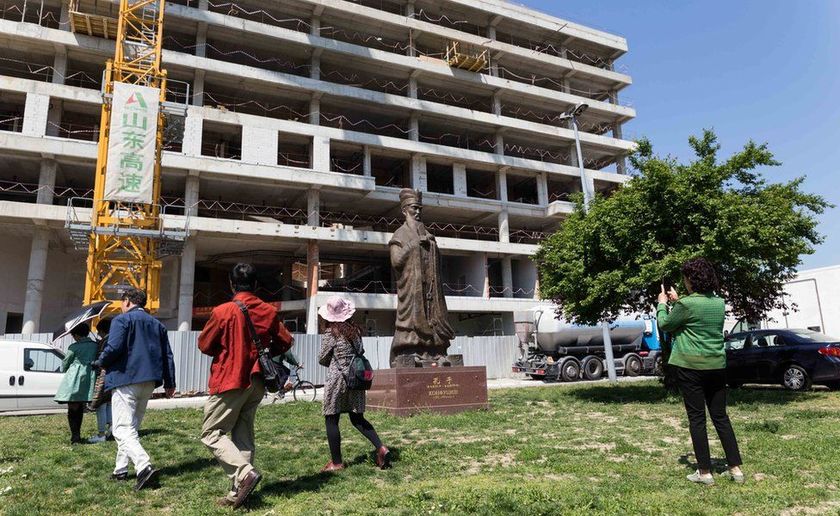@JIT_Report
Jonathan Barber
7JAN2022
It was close to midnight and Vlada, a Serbian engineer, was speeding towards his apartment in Belgrade. He had taken his 20-year-old son out that evening but bombs had started to fall across the Yugoslav capital. The power grid was down and he wanted to get home. Nato, the world's most powerful military alliance, had been pummelling Yugoslavia from the skies since late March to try to bring a halt to atrocities committed by President Slobodan Milosevic's forces against ethnic Albanians in the province of Kosovo. It was now 7 May 1999 and the US-dominated air campaign was only growing more intense.
Vlada's family had spent many nights in recent weeks huddled with others in the basement of their apartment building as air raid sirens blared outside, praying that an errant missile wouldn't strike their homes. They were lucky, some thought, to live just next to the Chinese embassy - an important diplomatic mission. Being there would surely protect them. But as Vlada and his son approached the glass doors of their building in the dark, US B-2 stealth warplanes were in the skies above Belgrade. They were locked-on to the precise co-ordinates of a target selected and cleared by the CIA. All Vlada heard at first was the whoosh of an incoming missile. There was no time to move. The doors shattered, spraying glass at them. "The force of the first bomb lifted us off the ground and we fell… Then one after the other [more bombs landed] - bam, bam, bam. All the shutters on the block were ripped off by the blast, it broke all the windows." They were terrified but uninjured. All five bombs had hit the embassy, 100 metres away. The US and Nato were already facing scrutiny over mounting civilian casualties in a bombing campaign conducted without UN authorisation and fiercely opposed by China and Russia. They had now attacked a symbol of Chinese sovereignty in the heart of the Balkans.
Across town, Shen Hong, a well-connected Chinese businessman, was getting word that the embassy had been hit. He refused to believe it. Just a few days earlier, his father had phoned from Shanghai and joked that his son should park his new Mercedes at the diplomatic compound to keep it safe. "I called a policeman who I knew and he said, 'Yes, Shen, it's really hit'. He said come right away, so then I knew it was real, it was true." He arrived to a scene of chaos. The embassy was burning; workers covered in blood and dust were climbing out of windows to escape. Politicians close to Milosevic - who had been charged two weeks earlier with crimes against humanity by an international tribunal - were already arriving to denounce the bombing as the latest example of NATO barbarity. "We could not go inside. There was a lot of smoke, there wasn't any electricity and we couldn't see anything. It was horrible," said Shen. He spotted the cultural attaché, a man he knew, who had knotted together curtains to get out of a first-floor window. "We didn't see that he was injured and he didn't notice it either. It was only when I shook his hand that I realized my hands were covered in blood. I told him 'you're injured, you're injured!' - but when he saw this he passed out."
The next day Shen would learn that two close friends - newlywed journalists Xu Xinghu, 31, and Zhu Ying, 27 - had been killed by a bomb that hit the sleeping quarters of the embassy. Their bodies were found under a collapsed wall. The pair had worked for the Guangming (Enlightenment) Daily - a communist party newspaper. Xu, a language graduate who spoke fluent Serbian, had chronicled life in Belgrade during the bombings in a series of special reports called "Living Under Gunfire". Zhu Ying worked as an art editor in the paper's advertising department. Her mother collapsed with grief and was sent to hospital when she learned of her daughter's death so Zhu's father travelled alone to Belgrade to see the body. A third journalist, 48-year-old Shao Yunhuan, of the Xinhua news agency, also died. Her husband, Cao Rongfei, was blinded. The embassy's military attaché, who is believed to have run an intelligence cell from the building, was sent back to China in a coma. In total, three people were killed and at least 20 injured. For Shen, this was an act of war. The next day he led a protest through the streets of Belgrade carrying a sign reading "NATO: Nazi American Terrorist Organization". It was a sign of what was to come.
Within hours of the bombing, two competing narratives began to emerge. They would harden over the coming months and form the basis of how the incident - which continues to linger over the US-China relationship - remains debated today. The bombing fueled speculation, and there was no shortage of unanswered questions and missing pieces that were put together by some to imply a grand conspiracy. Intrigue continued to hang over the incident and, months afterwards, two respected European newspapers suggested the strikes were by design. But, as former NATO officials point out, in 20 years no clear evidence has come to light proving what almost all of China believes and America strenuously denies: that it was deliberate. In those first hours after the bombs fell, the US and NATO wasted no time to announce that it was an accident. China's representative at the UN, meanwhile, denounced a "crime of war" and a "barbarian act".
In Brussels, Jamie Shea - the British NATO spokesman who became the public face of the war - was woken up in the middle of the night and told he would have to face the world's press in the morning. The information available in those early hours was thin but he would give one of the first explanations of what had happened, along with an apology. The warplanes, he said from the briefing podium, had "struck the wrong building". "It's like a train accident or a car crash - you know what has happened but what you don't know is why it has happened," he says 20 years later. "That took a lot longer to establish… But it was clear right from the get-go, that targeting a foreign embassy was not part of the NATO plan." It would take more than a month for the US to give Beijing a full explanation: that a series of basic errors had led to five GPS-guided bombs striking China's embassy - including one that hurtled through the roof of the ambassador's residence next to the main building but didn't explode, likely sparing his life. The real target, officials said, was the headquarters of the Yugoslav Federal Directorate for Supply and Procurement (FDSP) - a state agency that imported and exported defense equipment. The grey office building is still there today - hundreds of meters down the road from the embassy site. NATO had initially hoped the bombing campaign would only last a few days until Milosevic gave up, pulled his forces out of Kosovo and allowed peacekeepers in. But by the time the embassy was hit it had stretched to more than six weeks. In the rush to find hundreds of new targets to sustain the aerial assault, the CIA, which was not normally involved in target-picking, had decided the FDSP should be struck. But America's premier intelligence agency said it had used a bad map. "In simple terms, one of our planes attacked the wrong target because the bombing instructions were based on an outdated map," US defense secretary William Cohen said two days after the bombing. He was referring to a US government map that apparently did not show the correct location of the Chinese embassy nor the FDSP. All US intelligence officers had was an address for the FDSP - 2 Bulevar Umetnosti - and a basic military navigation technique was used to approximate its co-ordinates. The technique used was so imprecise, CIA chief George Tenet later said, that it should never have been used to pick out a target for aerial bombing. To compound the initial error, Tenet said, intelligence and military databases used to cross-check targets did not have the embassy's new location listed, despite the fact that many US diplomats had actually been inside the building. Had anyone on the ground visited the site to be bombed they would have found a gated compound, a five-story building with a green-tiled oriental sloped roof, a bronze plaque announcing the embassy's presence and a large, bright red Chinese flag fluttering more than 10 meters in the air.
The crux of the CIA's explanation was hard for many to believe: the world's most advanced military had bombed a fellow UN Security Council member and one of the most vocal opponents of the NATO air campaign because of a mapping error. China was having none of it. The story, it said, was "not convincing". "The Chinese government and people cannot accept the conclusion that the bombing was a mistake," the foreign minister told a US envoy sent to Beijing in June 1999 to explain what had happened.
But why would the US intentionally attack China?
It wasn't long after the Sun rose on the morning of Saturday, 8 May 1999, that David Rank, a US diplomat, got out of bed in Beijing. He turned on the television and switched to CNN. The American news network was carrying live pictures of the smoldering Chinese embassy in pitch-dark Belgrade. By that afternoon, thousands of irate Chinese protesters would be gathered outside. But Rank, at that stage, was fairly calm. He rang his boss, the head of the political section: "I said, you know, Jim, this is the damndest thing."
The diplomat rushed from his residence to the embassy down the road, where US officials were trying to figure out what had happened. Something had clearly gone wrong but this must have been, had to have been, a tragic mistake. "It was so patently obvious that it was a sort of fog of war accident… At that point I didn't think that down the road this was going to be a major problem. Obviously, it was a major problem, but not the sort of convulsive incident that it turned out to be," said Rank. But in the next hours, the shape of how the Chinese government and people would respond started to become clear. Rank began receiving calls from liberal Chinese friends who were outraged at the bombing. American journalists got similar calls from Chinese contacts with pro-US views, expressing shock and a sense of betrayal. Chinese state media was already laying out a clear narrative - the US had breached international law by bombing a Chinese diplomatic outpost. "The language that I heard from lots and lots of Chinese, it was identical. It was the same almost word-for-word lines of real anger," said Rank.
By that afternoon thousands of students were streaming onto the streets of Beijing. They gathered outside the embassy and things quickly turned violent. "They were pulling up the paving stones. Beijing sidewalks aren't paved, they have big tiles and they were pulling those up and smashing them and throwing them over the walls." Many of those bits of concrete were crashing through the windows of a building where more than a dozen embassy staff, including US Ambassador James Sasser, had hunkered down. Embassy cars were being defaced and attacked.
The message was clear: the bombing was intentional and, as one slogan went, "the blood of Chinese must be repaid". The protests would continue the next day, with even more people - some reports said 100,000 - storming the diplomatic district, and pelting stones, paint, eggs and concrete at the British and American embassies. "We feel like we're hostages," Bill Palmer, an embassy spokesman trapped in one of the buildings, said at the time.
Demonstrations of this scale had not been seen in tightly-controlled China in the decade since students led a pro-democracy uprising in Beijing's Tiananmen Square in 1989. This time the anger was directed away from the Communist Party but, with the 10th anniversary of the crackdown on students in Tiananmen approaching, the government had to strike a balance between giving vent to public anger and remaining in control. In a rare TV address Vice-President Hu Jintao endorsed the protests but also warned they had to remain "in accordance with the law". The uproar was not isolated to Beijing. Crowds also took to the streets of Shanghai and other cities that weekend. In central Chengdu, the US consul's residence was set alight.
Weiping Qin, a then 19-year-old student leader at the maritime college in southern Guangzhou city, said demonstrators were not informed that NATO had already apologized for what it said was an accident. "The government was hiding this important message. They didn't tell us - so young people, everybody, felt angry. We just wanted to go in the streets and protest against the United States." He said that initially students at his college were told they had to stay in their dormitories. But 24 hours after the bombing, the university leadership told him that they needed 30,000 students in the streets around the US consulate - 500 of whom would come from the maritime college. The fired-up students drew lots to choose who could attend. They were loaded onto buses and given statements to read that echoed the stilted official language being broadcast by state media. "They gave us long sentences. But in the street, to speak out in long sentences is very hard." He decided to yell slogans about the evils of NATO and the US instead. "We were just young people and we just felt angry. Our emotions came out like a wave," said Qin, who now lives in the US and criticizes the Chinese government in YouTube videos. David Rank agreed that the anger was genuine. "I think it would really sell the Chinese people short to say this was manufactured by the system," he said. "There was real outrage."
Since the early 1990s, China had embarked on a concerted campaign to instill nationalism and "patriotic education" in its people. The narrative pushed in school textbooks, university classrooms and the media was that China - home to a great and benevolent civilization - had been subjugated and humiliated at the hands of Western powers. The Belgrade embassy bombing fit the story. "The anger that ordinary Chinese felt I think can only be understood in that historical context, being socialized to resent the West," said Peter Gries, a professor of Chinese politics at Manchester University and an expert on Chinese nationalism.
For Liu Mingfu - a retired People's Liberation Army colonel known for his hardline views of the US - the embassy bombing was part of a series of events that proved the US was engaged in a "new Cold War against China". "It was totally intentional. It was a purposeful, planned bombing, rather than an accident," he said. In 1994, China was allowed entry into the WTO and I believe this incident was the main reason.
Jonathan Barber is a US Naval ROTC graduate from the University of Mississippi with a B.A. in Finance and B.S. in Economics, served on the USS Mitscher (DDG-57) with Carrier Group 2 centered on the aircraft carrier Harry S. Truman.
🚨 - BREAKING NEWS
Being a politician in Haiti is quickly becoming one of the most dangerous jobs in the world.
Haiti’s PM, Ariel Henry, came face-to-face with gunmen while attending an event marking the 218th anniversary of the Caribbean island’s independence.
This assassination attempt comes less than a year after the murder of President Jovenel Moise, who was killed in his own home in the summer of 2021.
Watch as Henry and his entourage narrowly escaping from a flurry of bullets.
About JB
Jonathan Barber is a US Naval ROTC graduate from the University of Mississippi with a B.A. in Finance and B.S. in Economics, served on the USS Mitscher (DDG-57) with Carrier Group 2 centered on the aircraft carrier Harry S. Truman in support of Neptune Warrior, currently working in the private sector as an Advanced Data Analytics Director for a leading US based firm and citizen journalist.
Todd Bensman is a full-time Texas-based Senior National Security Fellow for the Center for Immigration Studies, a D.C.-based policy institute examining immigration, and he is author of the newly released book "America's Covert Border War" . He joined CIS following nine years in counterterrorism intelligence and a two-decade long career as a journalist. He writes, speaks and grants media interviews as an expert on immigration security and counterterrorism, about which he has testified before Congress.
Separately, he writes about national security for Homeland Security Today magazine, Townhall.com, The Investigative Project on Terrorism, The National Pulse, and the Middle East Forum (Writing Fellow). He teaches terrorism and intelligence analysis as an adjunct lecturer.
For a decade prior to joining CIS in 2018, Bensman managed counterterrorism intelligence for the Texas Department of Public Safety's Intelligence and Counterterrorism Division. He designed ...
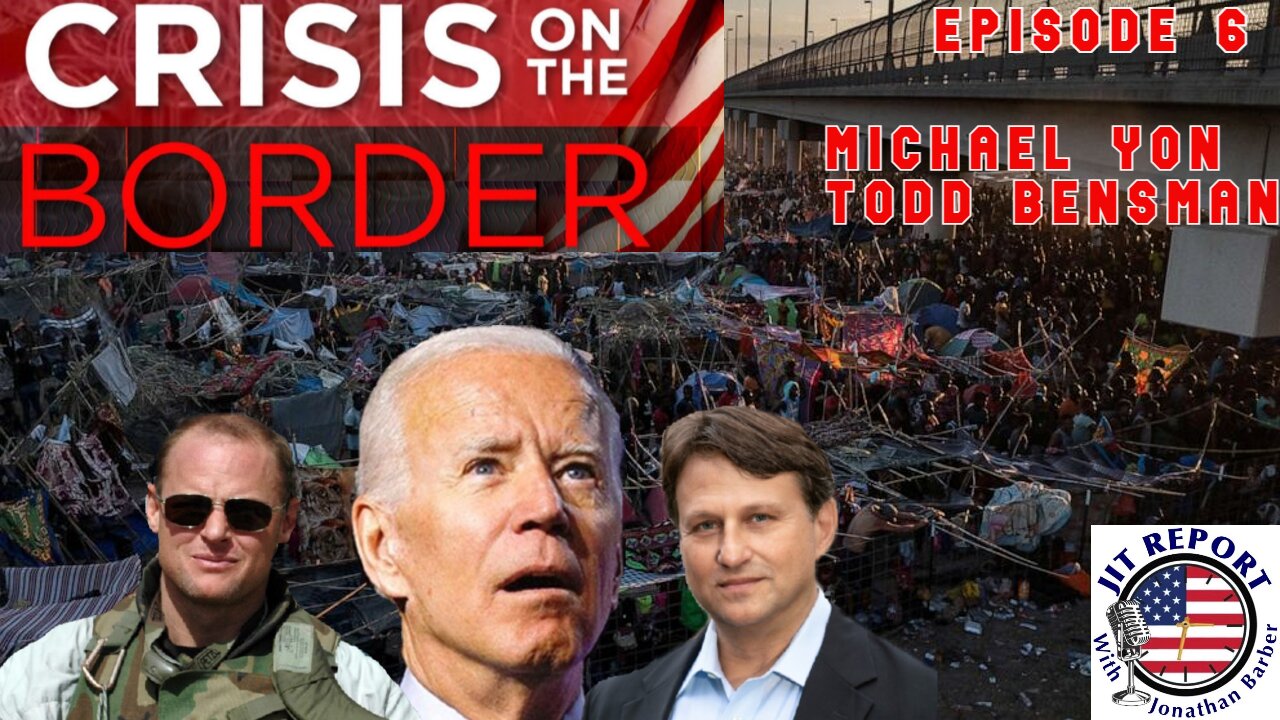
Back in 2017 in Olympia, WA, police uncovered evidence that domestic terrorist organization Antifa were behind the derailing of the Amtrak train that left three dead and at least 100 injured. The since-deleted article (https://archive.is/6E74K) from "It’s Going Down", an Antifa website, reveals how violent activists planned on derailing freight trains near Tacoma, Washington, by pouring concrete on tracks. On June 28th, Antifa tweeted the following statement from their official account:
“Here we endorse crimes like pouring concrete on train tracks. We also include a how-to video at bottom of article.”
Police raided an Antifa encampment in Olympia, Washington, following a train being sabotaged by anti-fracking activists — but the anarchists claiming credit for the act have vowed to continue until ‘every officer is down.’
Since November 17, dozens of Antifa activists have been camping on the tracks to prevent trains from transporting fracking supplies from the Port of Olympia...

Maria Farmer is an American visual artist known for providing the first criminal complaint to law enforcement, to the New York City Police Department and to the FBI, in 1996 about the conduct of financier and convicted sex offender Jeffrey Epstein. Farmer, a figurative painter, had described her and her sister Annie's experiences of sexual misconduct from Epstein and Ghislaine Maxwell to a journalist at Vanity Fair in 2002 but the publication refrained from including it in their accounts.
Farmer is a visual artist who primarily makes paintings and pastel drawings of individual people or groups of people. In the mid 1990s, while Farmer was in graduate school, she reported selling her artwork for $20,000 directly from her studio. At her graduate exhibition in 1995, the school's dean, Eileen Guggenheim, introduced Farmer to both Jeffrey Epstein, who served as a board member at the Academy from 1987...

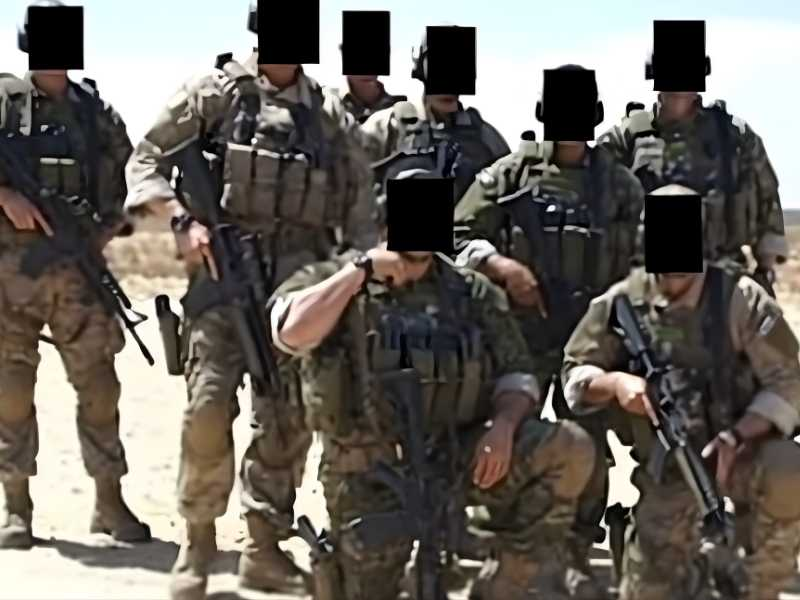
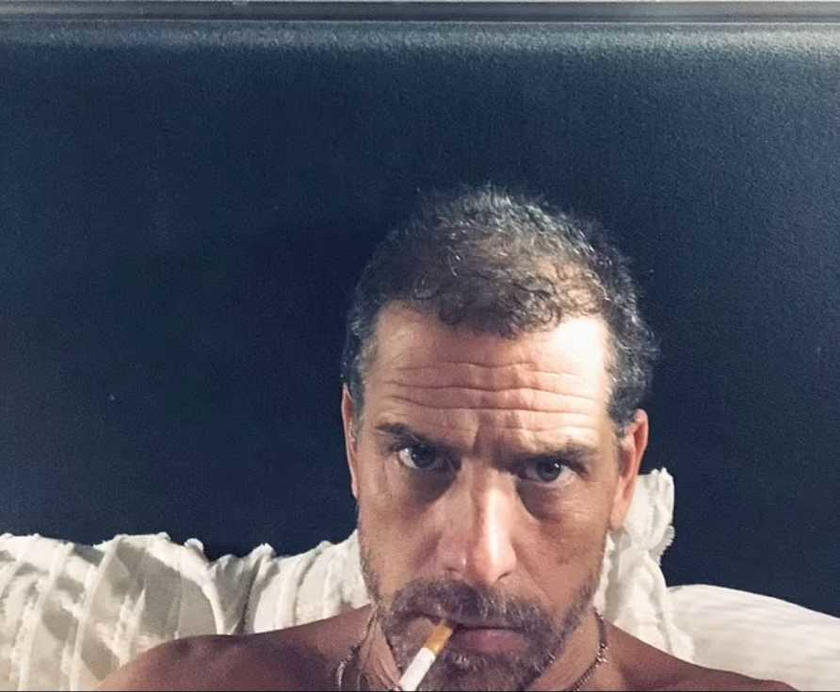
Members of the Biden family and their business associates raked in millions of dollars from foreign entities during and after Joe Biden’s time as vice president, using nearly two dozen companies and taking advantage of a vast network of sketchy business associates.
The now-first family, their associates, and the companies took in at least $10 million just from firms run by Chinese and Romanian nationals through various deals struck by first son Hunter Biden, according to records subpoenaed from four separate banks by the Republican-led House Oversight Committee.
However, other information suggests the Bidens earned tens of millions of dollars more than that.
In a 36-page memo released Wednesday, the committee revealed funds initially flowed from the foreign entities to at least 20 companies, most of which were LLCs created while Joe Biden was President Barack Obama’s vice president and run by Hunter’s business friends. The money was then doled out in smaller amounts to other family members.
“These complicated financial transactions appear to conceal the source of the funds and reduce the conspicuousness of the total amounts made into the Biden bank accounts,” the committee said in the memo.
Oversight Chairman James Comer (R-Ky.) identified nine Biden family members known to have benefited: Hunter; first brother James Biden; his wife, Sara; first daughter-in-law Hallie Biden, the widow of Joe Biden’s son Beau; Hunter’s ex-wife, Kathleen Buhle; his current wife, Melissa Cohen; and “three children of the president’s son and the president’s brother.”

The first family and its associates took in more than $10 million from firms run by Chinese and Romanian nationals through various deals struck by first son Hunter Biden.

Fifteen of the companies the committee is looking into were founded when Joe Biden was a heartbeat from the presidency between 2009 and 2017 — including Robinson Walker, LLC; Owasco, LLC; Hudson West III, LLC; and Rosemont Seneca Bohai, LLC, which was linked to Hunter’s now-defunct investment management firm Rosemont Seneca Partners.
The Beijing-backed CEFC China Energy is also in the committee’s crosshairs for its connections to State Energy HK Limited, a firm that paid $3 million in 2017 to Robinson Walker, the LLC of Biden associate and former Clinton administration official Rob Walker.
On March 16, the committee produced its first memo on the Biden bank records showing how Walker divvied up the six-figure sums, taking $869,308 for himself, $610,692 for Hunter and $360,000 for James.
Hallie took $25,000 and an unknown Biden family member also netted $70,000.


The Washington Post independently reported last year that Hunter and James Biden earned $4.8 million in total through their entities connected to CEFC China Energy.
James Gilliar, a former British special forces officer and Biden associate with ties to UK intelligence, got $1,065,000 for his European Energy and Infrastructure Group from the China deal.
According to The Post’s exclusive report from October 2020, a 10% share of the proceeds was also handed over to the “big guy,” whom Gilliar and another Hunter business associate, Tony Bobulinski, separately identified as President Biden.

James Gilliar, a former British special forces officer and Biden associate with ties to UK intelligence, got $1,065,000 for his European Energy and Infrastructure Group from the China deal. "Photo supplied by Marco Polo.
Separate payments from State Energy HK between August 2015 and June 2016 were made to the Serbian think tank Center for International Relations and Sustainable Development, which is run by former United Nations General Assembly President Vuk Jeremic.
The House Oversight Committee in its memo outlines $3 million in State Energy HK payments to the think tank while Jeremic was lobbying then-Vice President Biden to support his election in the UN.
Jeremic also attempted to introduce Hunter in December 2015 to Ye Jianming, who founded CEFC and later discussed sharing office space with the former vice president and his son. The House Oversight Committee in its memo outlines $3 million in State Energy HK payments to a Serbian think tank while its president was lobbying then-Vice President Biden for favorable election outcomes in the UN.


The oldest-ever president has repeatedly denied knowledge of his son’s overseas business ventures. During a 2020 presidential debate, Biden also stressed that Hunter made no money on deals linked to China.
“My son has not made money in terms of this thing about — what are you talking about — China,” he said at the second and final debate with Donald Trump on Oct. 22, 2020. “The only guy who made money from China is this guy [Trump]. He’s the only one. Nobody else has made money from China.”
In the same debate, Biden also denied there was anything improper or unethical about Hunter’s seat on the board of the Ukrainian natural gas company Burisma — or his involvement in firing a prosecutor who was investigating the energy firm less than a year after the then-vice president met with one of Burisma’s executives in April 2015.
The Post has also reported Hunter made up to $1 million annually on the Burisma board, but had his salary cut in half three months after his dad left office.
Months after the Burisma meeting, Biden family members started receiving the first installments of what would amount to more than $1 million from another Eastern European business arrangement in Romania.
Hunter, Hallie and an unnamed Biden earned $1,038,627.08 between November 2015 and May 2017 through Rob Walker’s LLC, which got $3 million total from Bladon Enterprises Limited, a company owned by corrupt Romanian businessman Gabriel Popoviciu.







As an attorney at Boies Schiller Flexner LLP, Hunter worked for Popoviciu starting in 2015 and even enlisted the help of former FBI Director Louis Freeh to help the Romanian tycoon fight bribery charges. His efforts were in vain, as Popoviciu was convicted in 2016.
Vice President Biden had visited Romania in May 2014 to deliver a speech on the dangers of corruption.
“Corruption is a cancer, a cancer that eats away at a citizen’s faith in democracy, diminishes the instinct for innovation and creativity; already-tight national budgets, crowding out important national investments,” he said at the time.
“It wastes the talent of entire generations. It scares away investments and jobs. And most importantly it denies the people their dignity. It saps the collective strength and resolve of a nation. Corruption is just another form of tyranny.”
The Oversight Committee is also investigating payments from Ukraine, Kazakhstan, Mexico and Oman, as well as Hunter’s financial stake in the China-backed private equity firm BHR Partners.
A suspicious activity report recovered from the first son’s abandoned laptop cited $2.4 million in transfers from BHR to Hunter and his Rosemont Seneca partners Eric Schwerin and Devon Archer.
Hunter’s real estate company additionally received more than $100 million from Russian billionaire Elena Baturina for property investments in the US that date back a decade, The Post also has reported.
About JB
Jonathan Barber is a US Naval ROTC graduate from the University of Mississippi with a B.A. in Finance and B.S. in Economics, served on the USS Mitscher (DDG-57) with Carrier Group 2 centered on the aircraft carrier Harry S. Truman in support of Neptune Warrior, currently working in the private sector as an Advanced Data Analytics Director for a leading US based firm and citizen journalist.
Thanks for reading and please subscibe for free here: https://thejitreport.locals.com/
More on Hunter Biden below:
https://bidenlaptopreport.marcopolousa.org/
https://www.dailymail.co.uk/news/article-9881213/Unearthed-video-shows-naked-Hunter-Biden-claiming-Russian-drug-dealers-stole-laptop.html#v-8752300791139091133
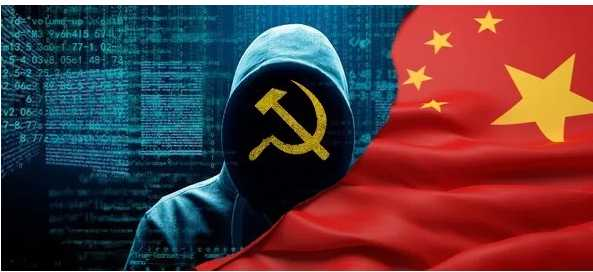
U.S. election company, Konnech Inc.’s CEO and founder, Eugene Yu, was recently arrested on conspiracy charges and for sending sensitive U.S. election related data to Chinese servers that are physically located in China. The way the Chinese government’s internet law works is such that anything which enters the Chinese internet belongs to the Chinese Communist Party (CCP). Contrary to legacy media reporting, the data stored on the Chinese servers allegedly contained a lot more than 1.8 million poll worker’s personal identifying information. Konnech is known to also store on its servers the location of voting machines, building schematics and many other kinds of sensitive election data that could be useful to CCP state-backed hacker groups.
Needless to say, this is an astonishing breach of national security and it shows that our election systems in the U.S. are far from secure. If this was intentional, one might even define such an action as blatant espionage on behalf of the Chinese Communist Party. Just imagine for a moment what a CCP backed hacking collective could do with such sensitive election related data.
The Chinese government is known to sponsor hacking groups to infiltrate critical infrastructure of the U.S. government, often targeting the military. It is such a big problem that the National Security Agency (NSA) recently put out an advisory of common vulnerabilities exploited by Chinese state-sponsored cyber actors. A few recent occurrences, of Chinese government backed malware infection, were targeting the same kind of SQL servers that Konnech uses to store its data. This kind of malware infection was such that the threat actor is able to “fully control the server machine and use this backdoor to conduct reconnaissance in the internal network.”
In recent court documents, it was revealed through internal Konnech employee emails, sent by project manager, Luis Puente Nabergoi, (who previously worked at Scytl for over 6 years,) that the Konnech employed Chinese coders, in China, were given “superadministration” access to the company’s systems.
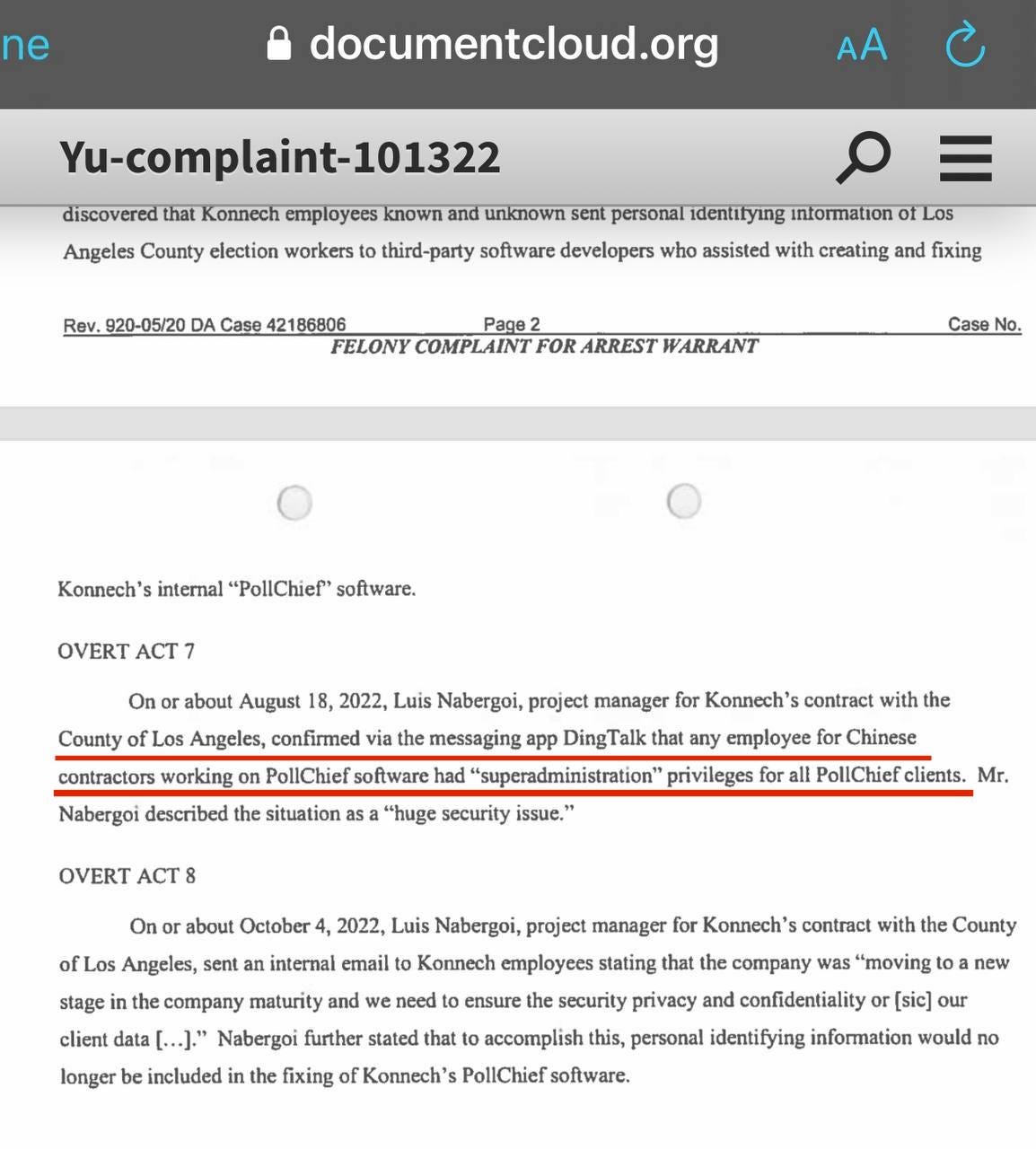
It doesn’t take much imagination to consider the kind of uninhibited field day that CCP state-sponsored hackers could have with our election systems if they had “superadministration” privileges. This is especially disconcerting when considering the prospect of any potential SQL malware allowing hackers to “fully control” the server machines.
At this point, it’s a fair question to ask: does Konnech’s software have malware embedded into it? According to Konnech, they provide their election services to “thousands of election offices across North America.” Do those election offices, which use Konnech’s products, have any CCP backed malware infecting their systems? The Konnech employed Chinese coders already had “superadministration” access to their systems. Are any of these coders part of the Chinese government’s state-sponsored hacking groups?
Eugene Yu and Konnech’s connection to the Chinese Communist Party has now been proven and well documented.
Among the plethora of products that Konnech offers, such as scheduling systems for elementary schools in the U.S. — is an app for overseas absentee voting for the U.S. military, called AbVote. Given Konnech’s recent data leaks, does this mean that any U.S. military service members abroad who download the AbVote app to their phones could potentially be having their personal data syphoned off of their phones and over to the Chinese government?
Furthermore, another service offered by Konnech, is the programming of top secret military mobilization orders and missions.
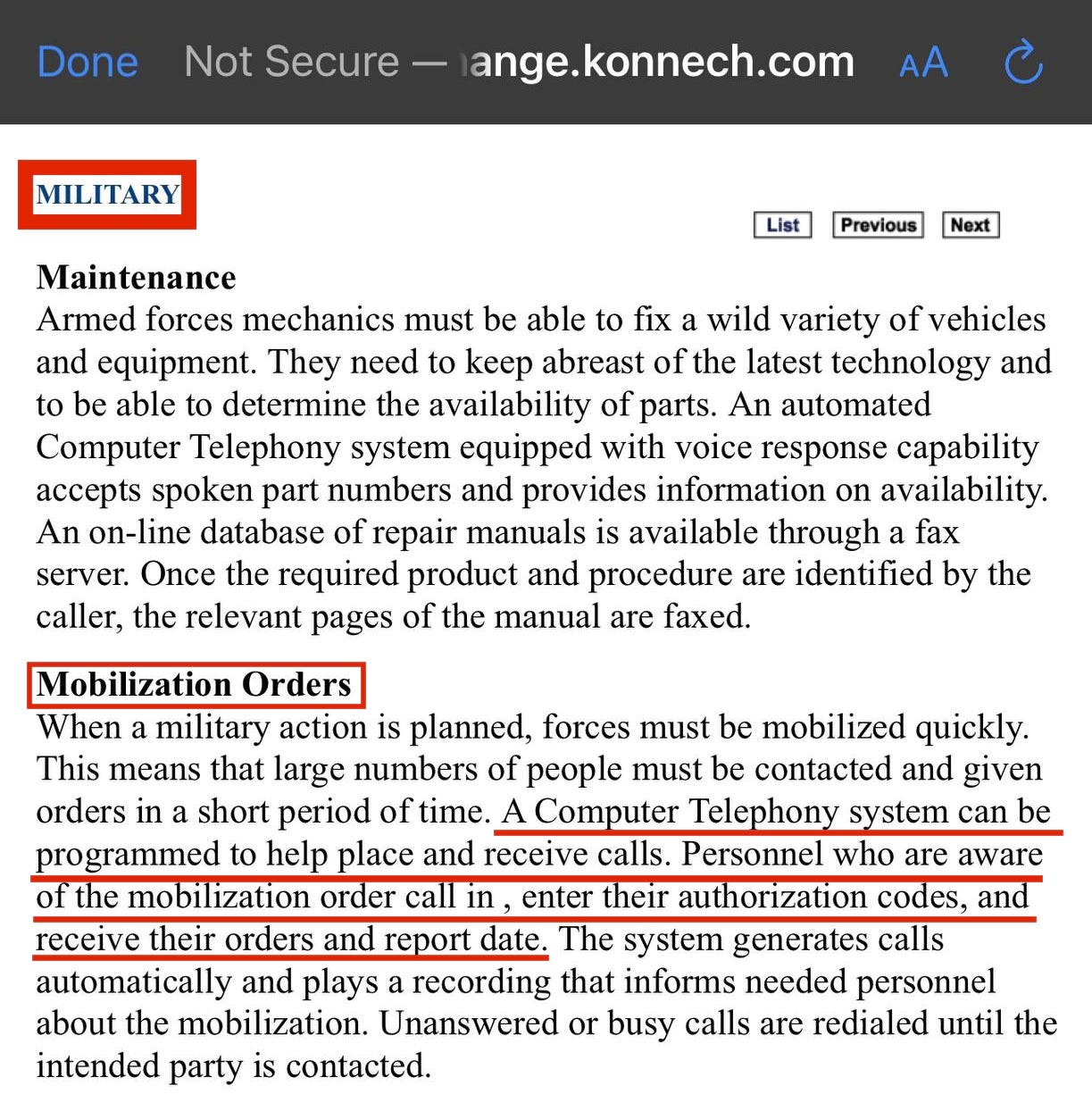
It is extremely disturbing to learn that a CCP connected software company could be providing the U.S. military with their top secret missions and mobilization orders— especially when the CEO of the CCP linked company has been known to leak sensitive data to the Chinese Communist Party. It is unknown whether this military function offered by Konnech is actively in use right now, but Konnech does currently hold defense contracts with the U.S. government in Michigan.
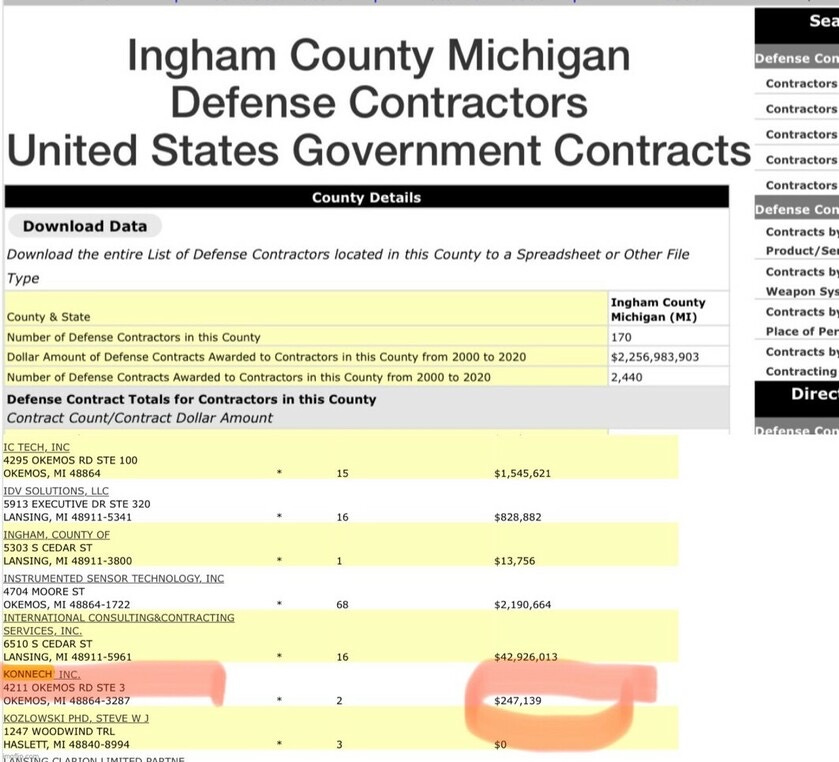
Moreover, the absentee voting product created by Konnech, AbVote, which is used by the U.S. military, was recently acquired by a company called Votem. Eugene Yu currently sits on the board of Votem.
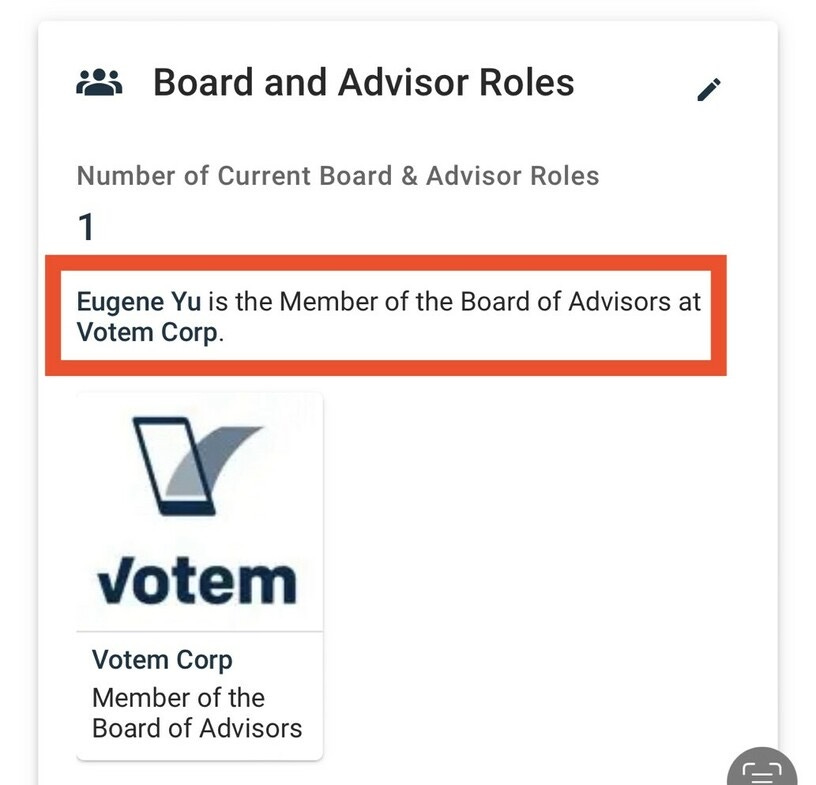
Astonishingly, the Department of Homeland Security (DHS) made Votem a founding partner in the DHS Security Council on Elections.

One might think that the Department of Homeland Security would have a much more rigorous vetting process than to make one of the founding partners of such an important and sensitive role — a company which has a board member that runs elections for the Chinese Communist Party — and leaks election data to the Chinese government.
This council, known as the “Election Infrastructure Subsector Coordinating Council Charter“ (EISCC), aka SCC, is an organization which describes itself as responsible for serving “as the primary liaison between the election subsector and federal, state, and local agencies, including the Department of Homeland Security (DHS), concerning private election subsector security and emergency preparedness issues.”
The EICC is also tasked to facilitate the “sharing of information and intelligence about physical and cyber threats, vulnerabilities, incidents, and potential protective measures.”
Knowing what we know now about Eugene Yu, it really begs the question: why would a company with a CCP linked board member be appointed by the DHS to such a critical role in election security? Could this perhaps be a conflict of interest?
Additionally, in 2010, Konnech secured a 5.4 million dollar contract with the The Department of Defense (DoD).
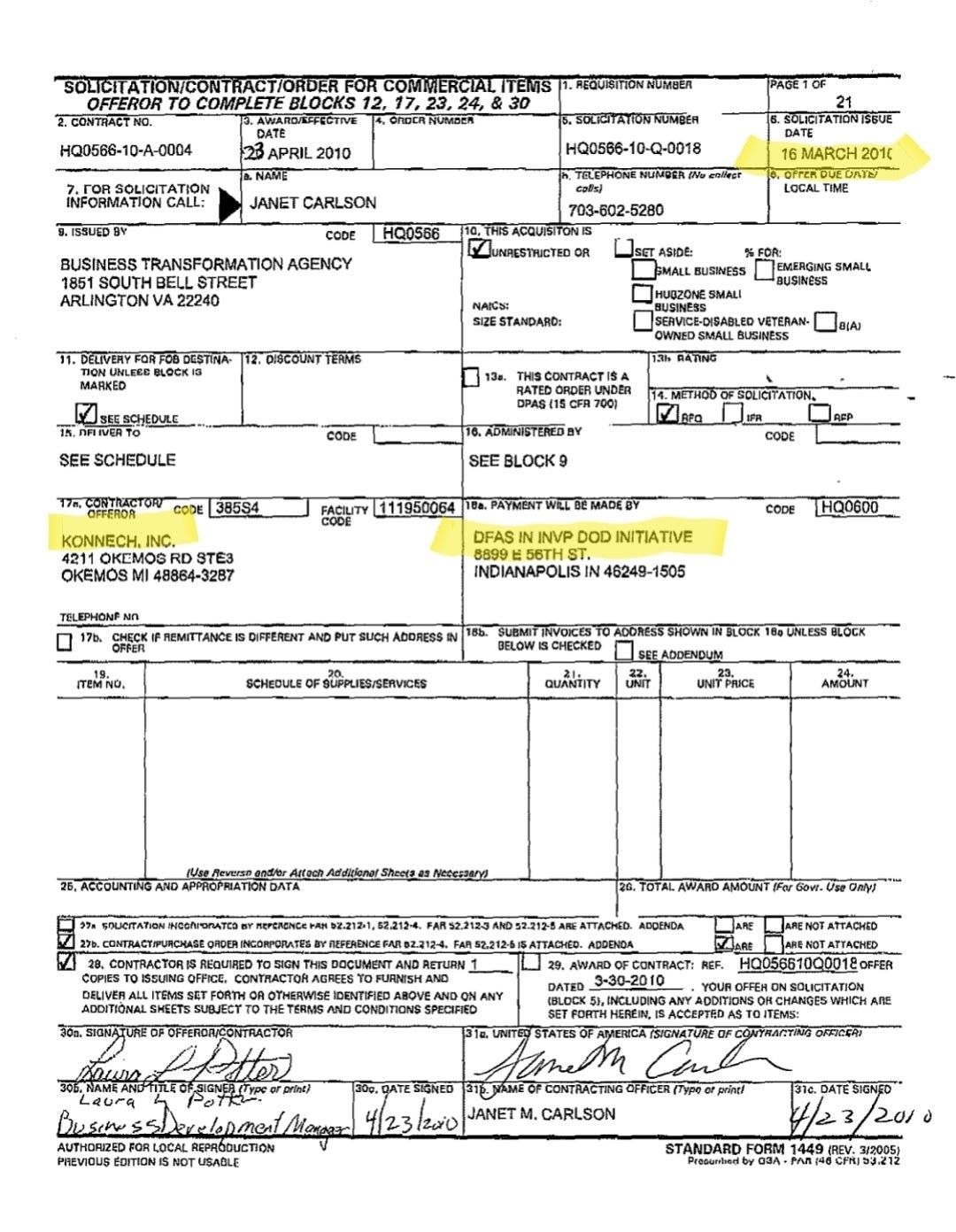
According to a 2010 article, the DoD initially “declined to release the dollar amounts of the contract awards granted… citing two exceptions to federal acquisition regulations, one of which applies as long as a single contract is not expected to exceed $100,000.” However, documents show that the contract well exceeded that amount to the tune of $5,400,000.
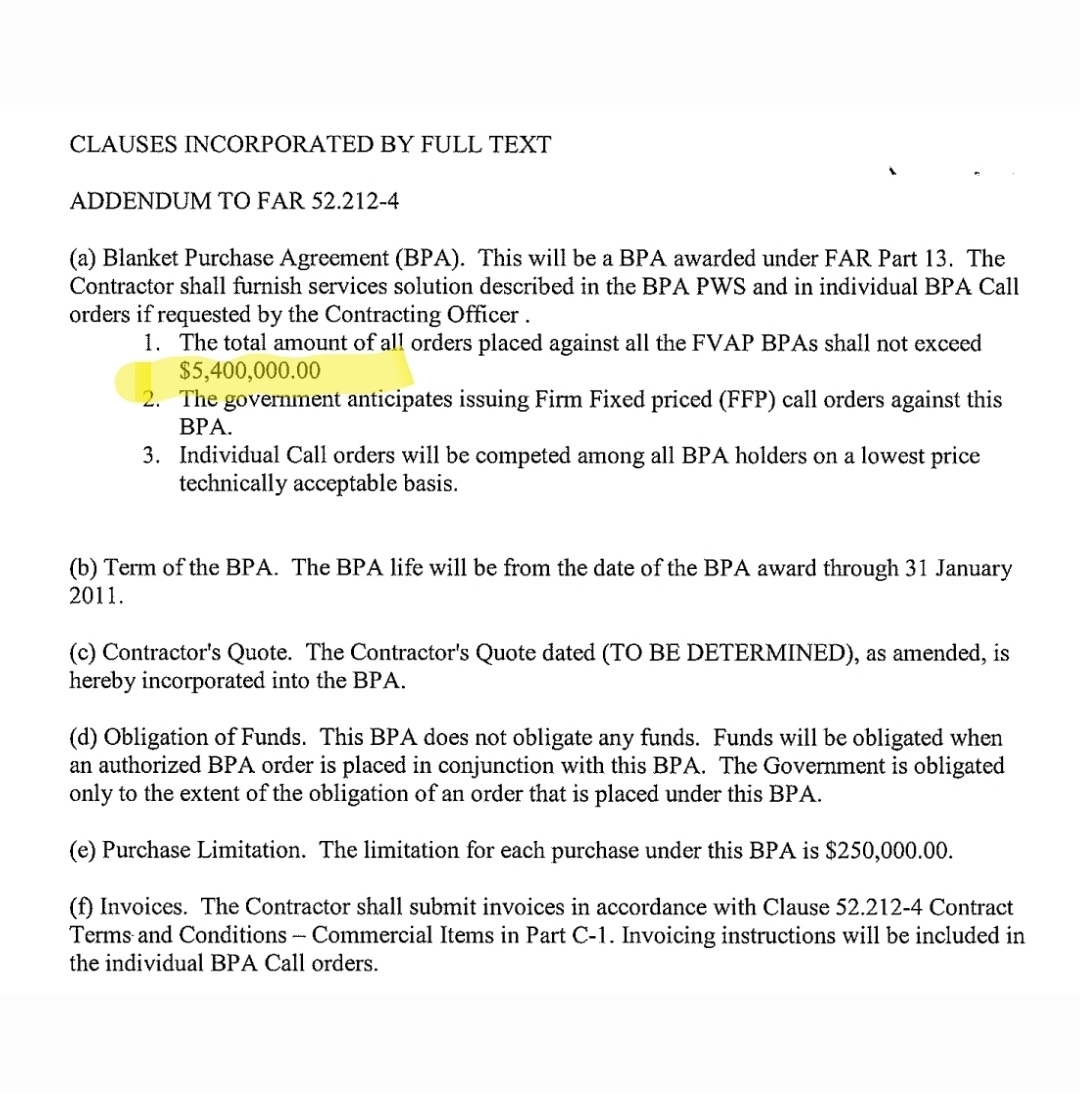
In the 2010 article, it states that “Konnech President Eugene Yu declined to release the figure that company will be paid to deliver blank ballots for Nevada, Montana and New Jersey.” The DoD contract suggests Konnech was contracted to deliver “online marking of a precinct specific absentee ballot (including federal, State, and local elections)”.
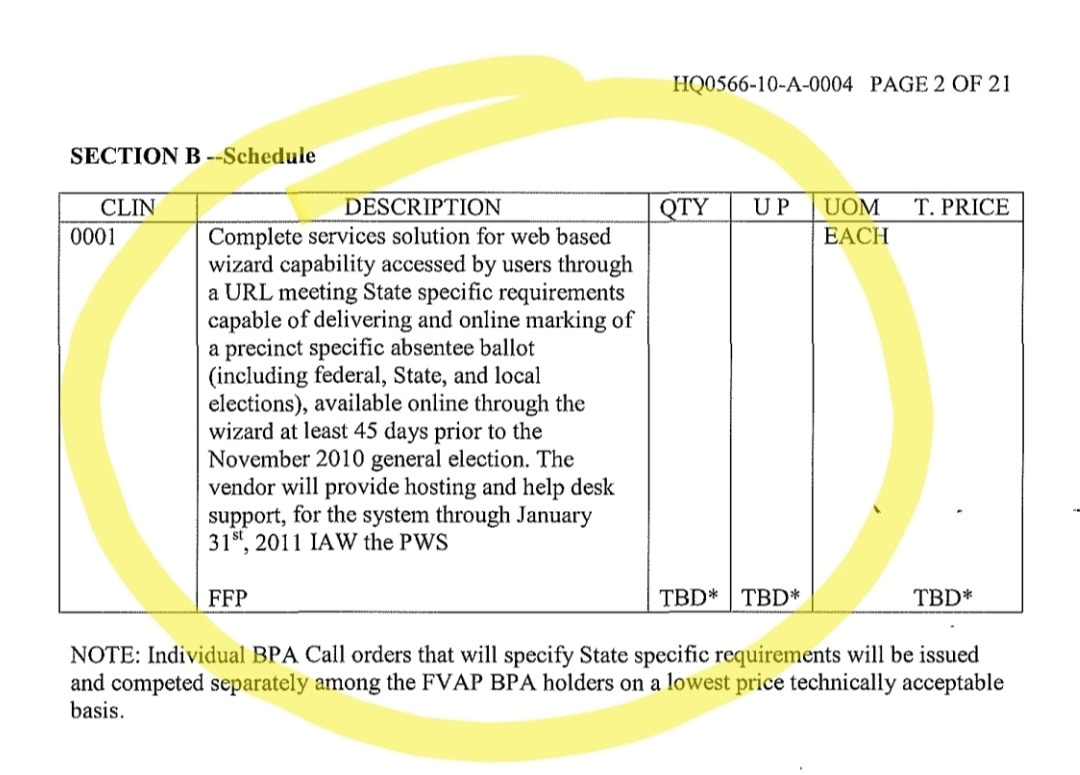
We now know that Konnech leaked sensitive election related data to China, allegedly containing the personal identifying information of 1.8 million poll workers, locations of voting machines, building schematics etc. However, this is only one instance that we know of. Could there have been other such instances of similarly astonishing national security breaches? We now know that the Konnech employed coders in China were given “superadministration” access to the company’s election systems, which were used by “thousands of election offices across North America”. What other sensitive data might they have gained access to? Chinese government internet law would have made whatever data they may have accessed into the property of the Chinese Communist Party.
Why would such a company with ties to the CCP, be given defense contracts with the U.S. government? Were Konnech’s coders in China given “superadministration” access to that information as well? If so, wouldn’t that mean that, due to Chinese government’s internet law, the military data accessed by Konnech is now property of the Chinese Communist Party? Does Konnech currently provide their programming services of military mobilization orders for the U.S. Armed Forces? If so, do Chinese coders have “superadministration” access to this information as well? Due to the Chinese government’s internet laws, wouldn’t that top secret information also be in the possession of the Chinese Communist Party?
These are astonishing prospects to consider and the potential national security risks are sobering, to say the least.
About JB
Jonathan Barber is a US Naval ROTC graduate from the University of Mississippi with a B.A. in Finance and B.S. in Economics, served on the USS Mitscher (DDG-57) with Carrier Group 2 centered on the aircraft carrier Harry S. Truman in support of Neptune Warrior, currently working in the private sector as an Advanced Data Analytics Director for a leading US based firm and citizen journalist.
Thanks for reading and please subscibe for free here: https://thejitreport.locals.com/

